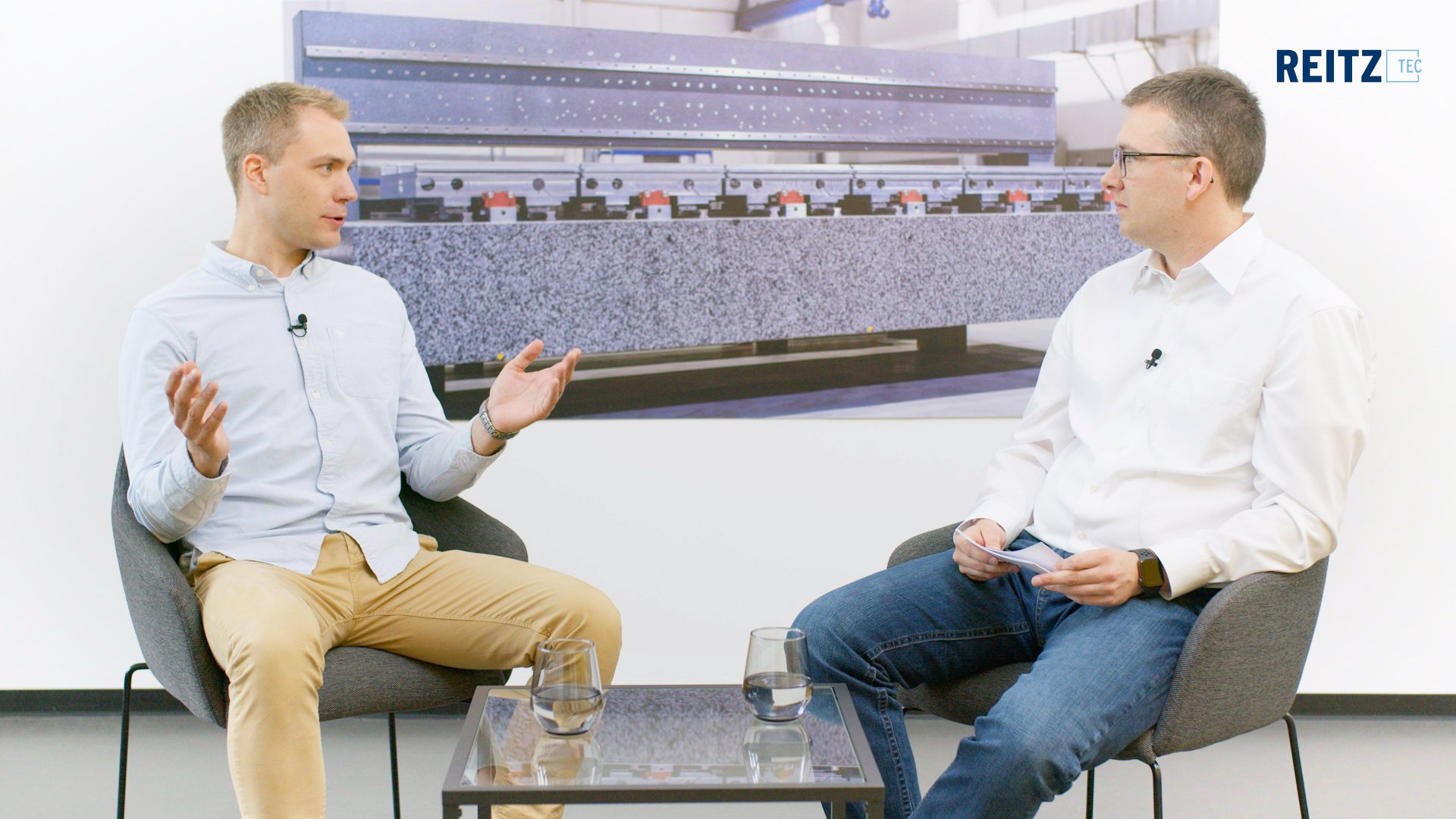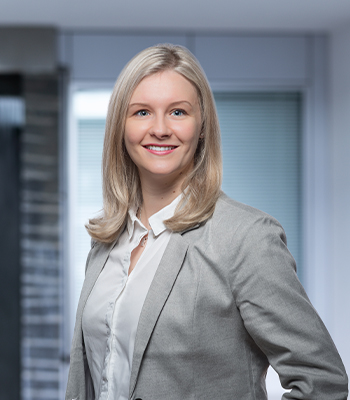We let the customers have their say: Our success story with STÖCKEL Werkzeugmaschinen GmbH – Part 2
In the first part of our success story, you learnt more about STÖCKEL GmbH as our long-standing customer and our cooperation. The second part is now dedicated entirely to the special features of granite as a material in machine construction – prepare to be amazed!
"We build high-precision machines. High precision means that the basis for the machine has to be right. And granite is the perfect material for this.“ (Felix Kämpfer)
Christopher Reitz: Hello Felix, and welcome back to the second part of the REITZ Stöckel episode of the REITZ Tec blog. In part one, we discussed our long-standing cooperation and the advantages of granite. Now let's talk about granite in special machine construction – please give us a few examples.
Felix Kämpfer: Indeed – last time I already mentioned that we are always able to construct machines to customer specifications, including with the use of granite. For instance, we once had a customer who needed a machine that was designed to machine particularly tall and heavy components. We are already able to design a machine to be half a metre taller or for a component weight of seven to eight tons. Of course, we have to be entirely unconventional with the construction. So for instance, we might have to plan for a different guide system, but granite is actually excellent even for that. This makes it easy for us to adapt machines precisely to specific requirements.
Another customer, for instance, had a specific component geometry that needed to be machined on several sides. In such cases, we then use additional spindles. All this is very easy to do because of the freedom of design and because we always start from scratch with the machine concept. Another advantage is that we, or REITZ, are able to lap any surface with minute precision. So this means that even if I need screw-on surfaces somewhere or a particularly precise guide, all this can be done. This means we always achieve straightness in the lapped guides of one µ per metre and sometimes also a planarity of two µ per square metre.
Christopher Reitz: You sometimes ask us for higher weights that are well suited for larger machine beds and trusses. This also means, as I learnt at the beginning, that the machines must then also be vibration-damping, right?
Felix Kämpfer: That's right – and that's another advantage of granite. On the one hand because of the component or material property, but on the other also just because of the high weight that is fitted in the machine. Another advantage that is also related to vibrations is the low residual stress in the material. This helps us with the machines because there is no distortion in the material construction over time. After all, the granite has been ageing for millions of years. That is to say it is by nature almost without residual stress. There is far more residual stress in a bed that has been cast or welded that then decreases over time. As the result, the machine may warp. Even if this is only in the micro range, it is still a disadvantage for a grinding machine that has to work with absolute precision. And this doesn't happen with granite machine beds, which stand absolutely freely on machine feet and don't have to be straightened, but can actually stand freely on adjustable machine feet for the entire duration of their service life.

Christopher Reitz: Perfect. Now, we've spoken about all the many advantages. However, there are also a number of disadvantages, and we don't want to keep them from our listeners and viewers. Can you give us a few examples?
Felix Kämpfer: As you say, the world isn't perfect, and there's no perfect material. If I have a welded or cast bed, it's often hollow and ribbed. With granite, it's a fact that the blocks are always highly solid. This makes the machine highly stable and rigid, but also very heavy as well. So you might need special transportation for a larger machine. The machine weights go up to 50 tons, and this means, of course, that much more effort is required for the machine to be transported to the customer. And of course, I can't put a basement under a machine like this; the floor has to be strong and stable enough to support its weight.
Christopher Reitz: Thank you for this terrific information, which is also essential for our listeners. Now I have another important point. In our previous blog, we discussed sustainability and our natural material granite. Is it also an advantage for you today?
Felix Kämpfer: Yes, using granite for machines is most definitely an advantage. Every granite block that is used in machine construction has, of course, been taken from nature – as indeed has almost every raw material. And here too, large amounts of energy are required for cutting the block to shape and transporting it. However, the energies are still much lower than, for instance, is the case with the use of steel or cast materials, when far greater quantities are mined. These then have to be worked into the raw material in far more temperature-intensive processes and then cast again. So in effect, we're already doing well here by using granite. Another advantage in terms of the service life of the machine is that granite doesn't rust or distort.
You've already said that your product doesn't go bad. This means I have a really durable machine that won't corrode. We try to make maximum use of this in our machines and to enhance the effect by relying almost entirely on stainless steel for the cladding on granite machines, which also doesn't corrode. So the customer can use his machine for the maximum period of time because, of course, using a product actually is a key contribution to the life cycle assessment.
Christopher Reitz: That's not really so good for you, nor is it for us.
Felix Kämpfer: You're right, and it might mean that we sell a couple of machines less because customers are able to use them for longer. But that's actually what it's all about – giving our customers a long-lasting, accurate machine.
Christopher Reitz: If our customer is happy with our granite, then we are too. Even if it's only for one project at first, and he doesn't come back for another five years. Felix, just to sum it all up again quickly – a short, precise summary of our two episodes for our listeners and viewers about what exactly is important to you as a machine tool manufacturer, and about granite as a material.
Felix Kämpfer: As I said at the beginning, we build high-precision machines. High precision means that the basis for the machine has to be right. Granite is the perfect material for this. The natural properties of the material offer the perfect conditions that allow us to lap by hand. But it also means that I need a machine that doesn't lose any precision even if it is used for a long time. In the best case, it shouldn't be deformed by temperature influences, nor by residual stress. All this is given when granite is used, and enables us to build highly precise, long-lasting machines.
Christopher Reitz: Beautifully summed up. I think we've covered every aspect now. This will have been a very exciting topic for our listeners. Thank you very much for taking the time to talk to us. We'll put your contact details at the bottom so viewers can get in touch with you, and we'll show a few pictures of your lovely products. Thank you very much.
Felix Kämpfer: And many thanks from me, too, for allowing me to be here.
Christopher Reitz: The REITZ TEC video blog is now going to take a short summer break, and we'll let you know through social media and newsletters, which you are welcome to subscribe to, when we'll be back. Until then, stay healthy, and have a lovely summer. Goodbye for now.

